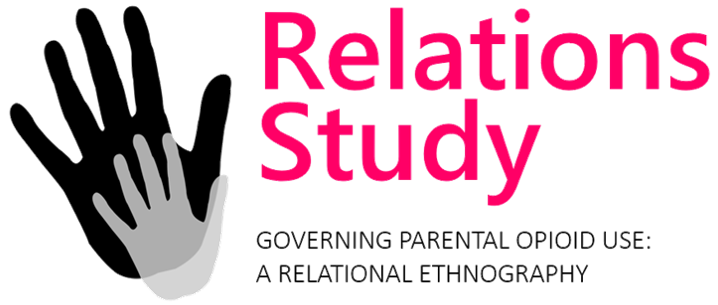Abstract title: Surveillance and Self-Surveillance in the care of Parents who use Drugs and their Families
Abstract:
The Relations Study used ethnographic methods to explore care practices for parents who use drugs in Scotland and England. This paper explores data on surveillance practices that were deployed by practitioners with parents involved in the child protection system. Routine surveillance practices to assess parenting (e.g. records of attendance, unannounced visits) were used alongside practices that specifically target drug use (e.g. drug testing).
Drawing on previous studies by Moore and Michaud that explore the ‘porous borders between practices of care and control’ in drug treatment, we examine how surveillance practices with parents are enacted relationally. Parents were encouraged to form trusting relationships with practitioners who routinely ‘check’ on them, at the same time as they were assessed in their performance as good parents (e.g., during supervised child contacts). Practitioners determined the extent to which parents were ‘open and honest’ with them, for example by disclosing ‘slips’ and ‘lapses’; presentations that were checked via drug testing.
The meanings professionals afford to drug testing results were context specific, ambiguous, and made in relation to a range of other ‘evidence’ (observations, formal assessment, records of attendance and compliance). Monitoring practices such as drug tests were contested, including between practitioners themselves, with their accuracy presented as both fool proof and unreliable. Such monitoring practices and information gathering lead parents to perform self-surveillance, enacting the “good” parent and self-checking when with practitioners. Practitioners also engage in self-surveillance to ensure they present themselves in certain ways to parents and colleagues. Record keeping, for example, served as a protective means to monitor their performance (e.g. ensuring concerns were well documented to avoid culpability) and also as a way of driving good practice (e.g. ‘evidence’ for decision-making). We argue that a focus on surveillance and self-surveillance obfuscates alternative approaches to responding to parental drug use.
Abstract title: Governing parental drug use: analysing practitioners talk and the production of child protection risk
Abstract:
Reflecting on our own research practice with participants in a relational ethnographic study exploring the governance of parental opioid use in Scotland and England, we trouble some of the ways in which we generate, analyse and represent the everyday lives of parents who use drugs within such a highly contentious field. Drawing on the analysis of data that explored how health and social care practitioners produce risk related to parents who use drugs, their children and structural issues, we demonstrate how certain care practices are afforded (and not others) and how differing risk thresholds and decision-making are produced in relation to child protection interventions. These representations include binaries of acceptable (good enough) and unacceptable (‘risky’) parents and parenting. Discourses that pathologise and responsibilise parents who use drugs relied on deficit models of parental inadequacies and failures. For example, parents who were constituted as ‘risky’ were ‘chaotic’, lacking in ‘engagement’, faking compliance, concealing drug taking, making bad ‘choices’, and unable to cope with the demands of drug treatment and family life. Drawing on the work of Bywater, Featherstone and colleagues, who trouble neoliberal models of social welfare and social work practice, we argue that such discourses function to obscure the socio-economic and political context of drug use and its intersections with parenting, child welfare, family life and the state. We explore the ethics of creating alternative realities through ethnographic research with parents who use drugs and practitioners that could benefit both.
